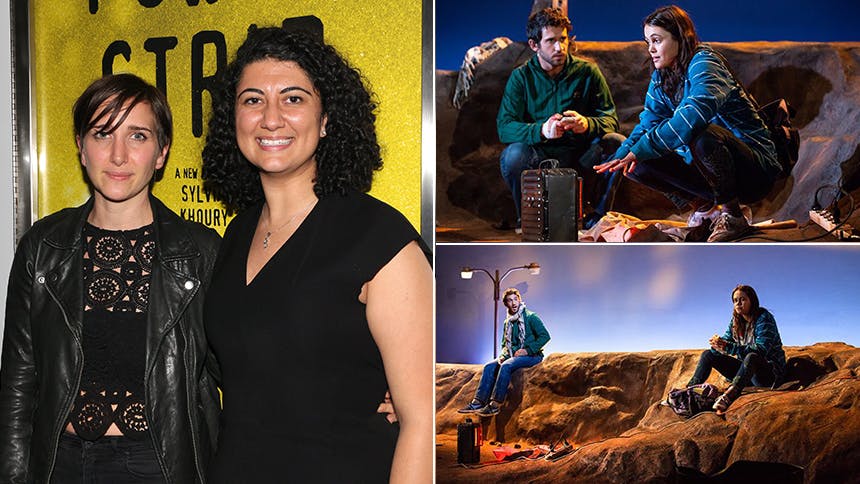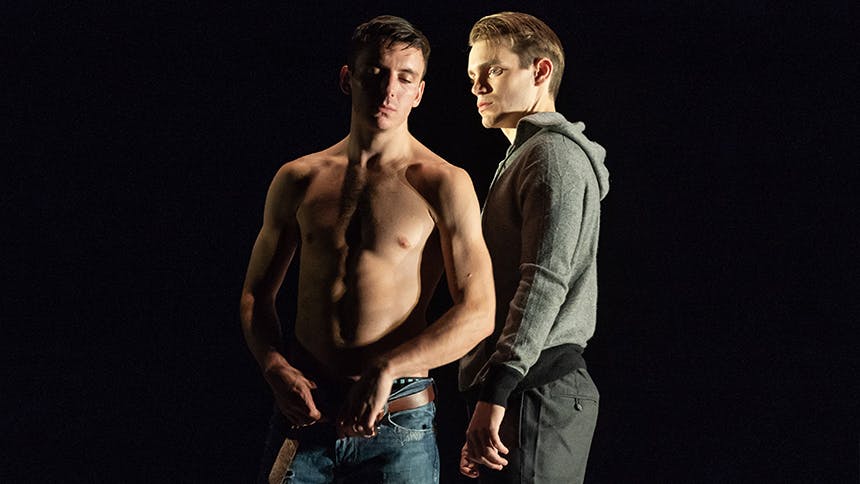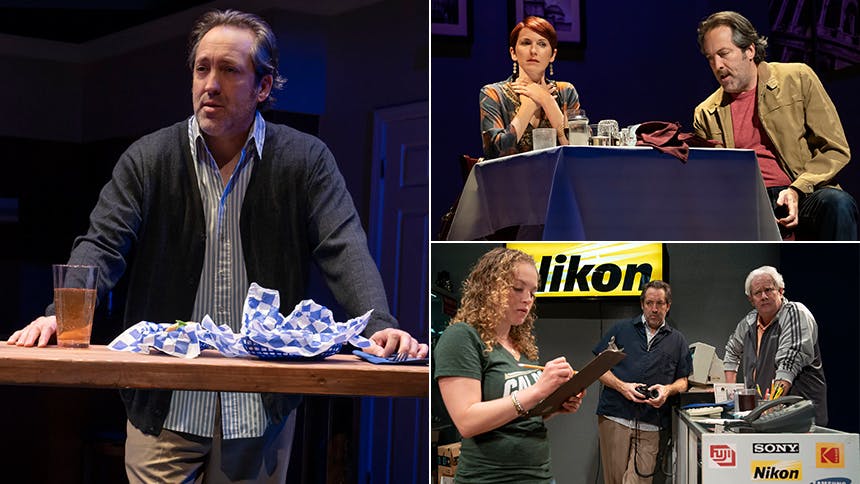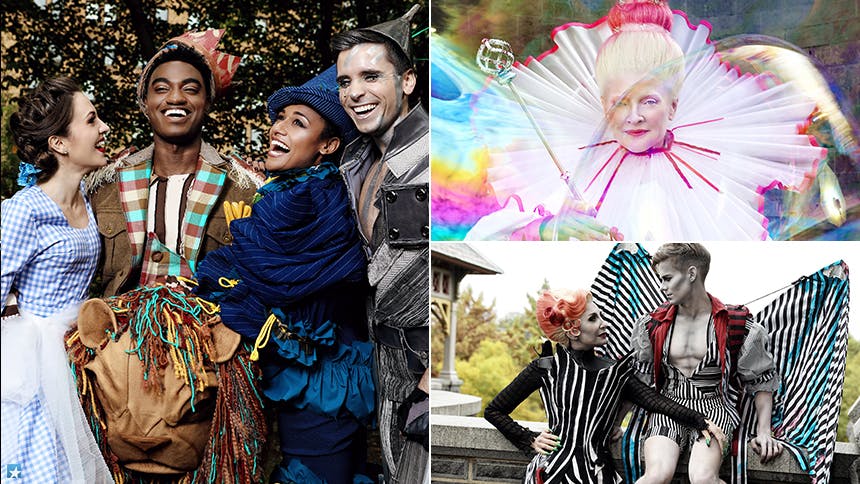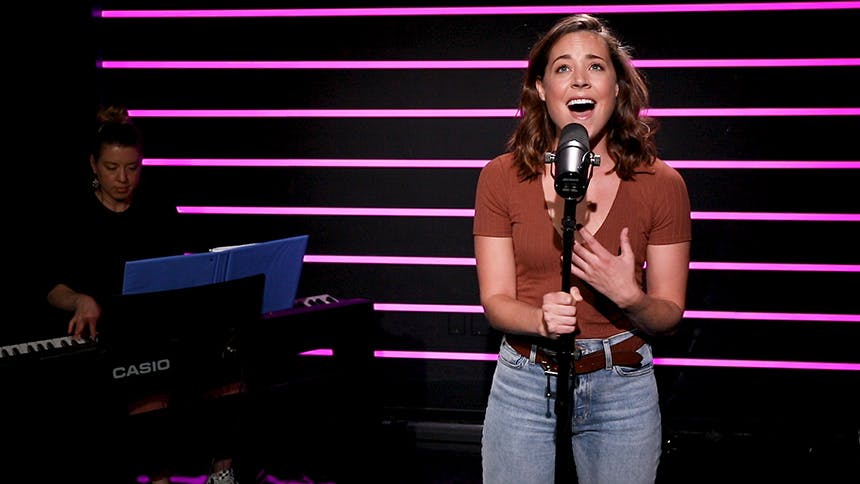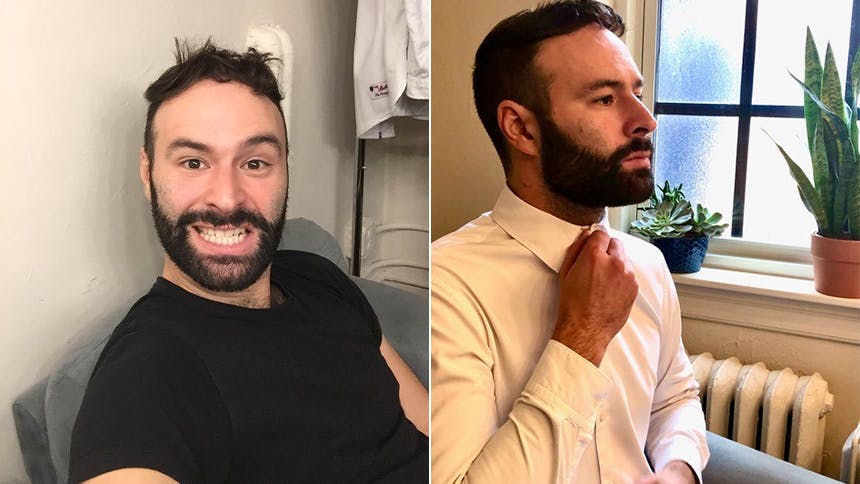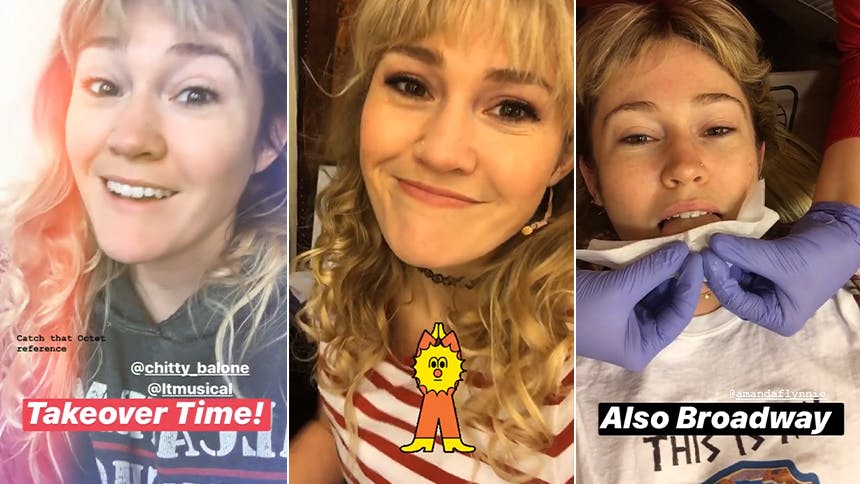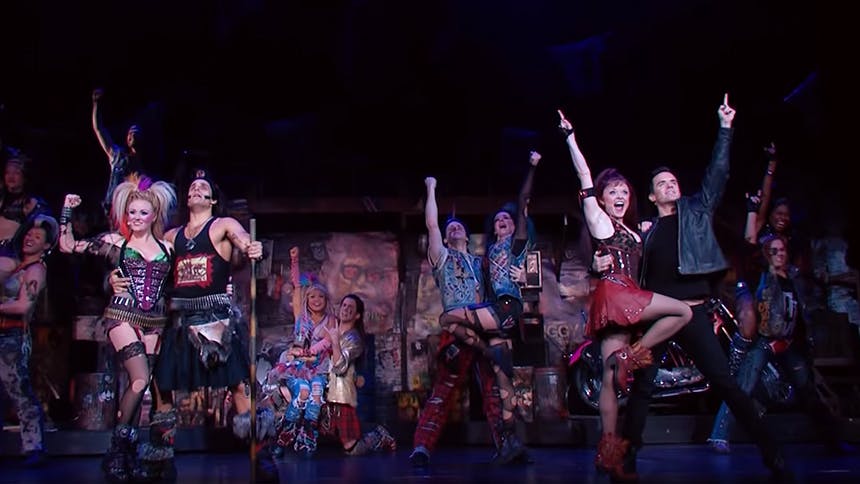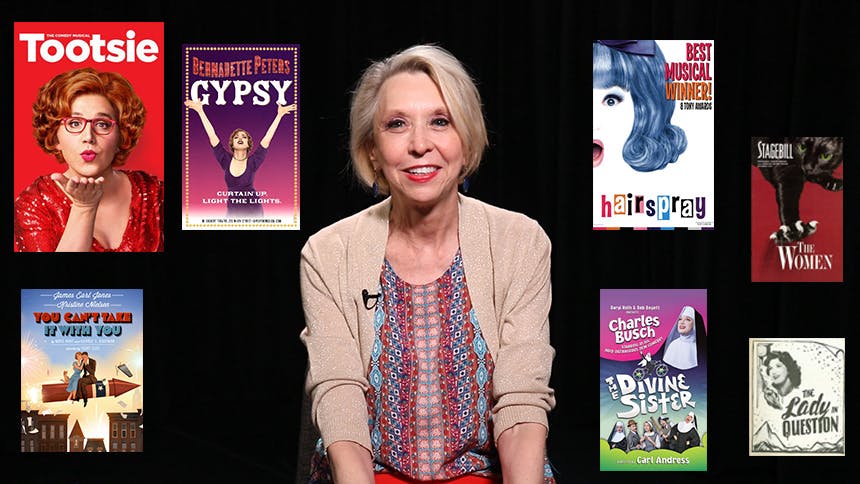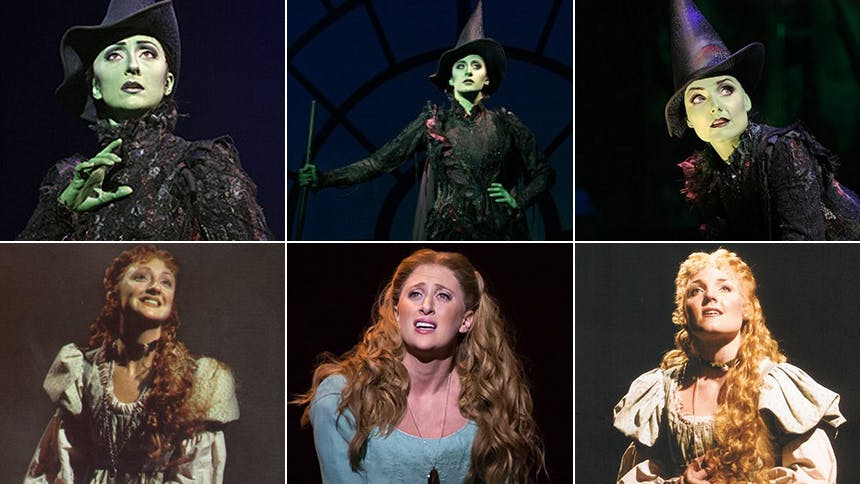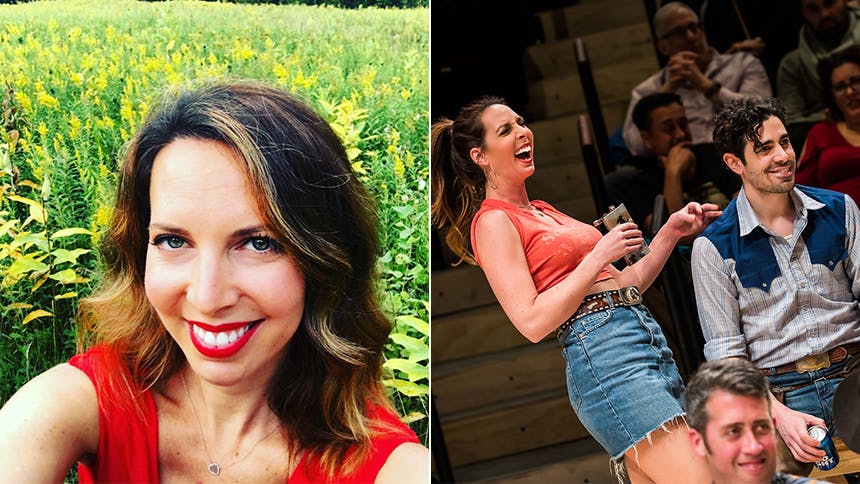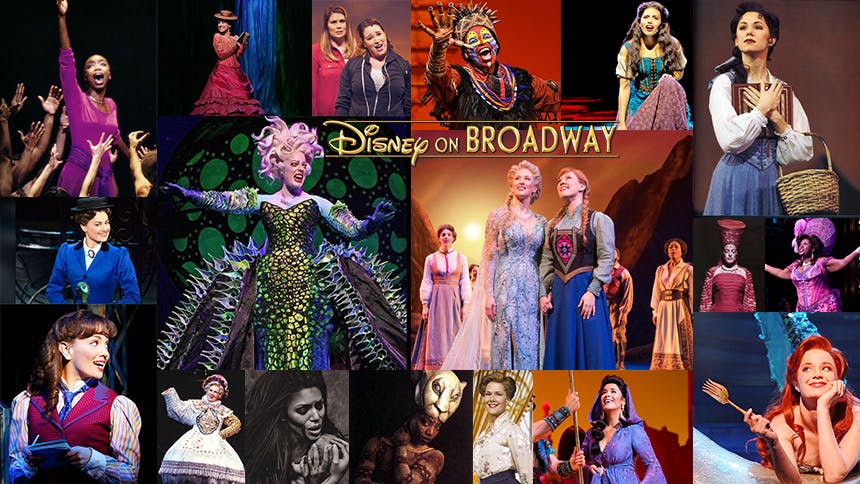Director Tyne Rafaeli makes thought-provoking theatre that engages, entertains, and challenges its audience. Her latest project is Sylvia Khoury’s Power Strip
for Lincoln Center Theater’s LCT3. The timely play focuses on a young Syrian woman’s experience in a Greek refugee camp. Later this spring, she and Khoury will team up again for Playwrights Horizons’ production of Selling Kabul. An in-demand force in the off-Broadway scene, Tyne recently directed the Roundabout hit Usual Girls, MTC's Actually, and Playwrights’ I Was Most Alive With You. Scroll on as BroadwayBox talks with Tyne about her creative process, her global education in the arts, and powerful political theatre.1. As the director, what was your biggest challenge initially with Power Strip and how did you overcome it?
The characters in Power Strip have lived through complex and traumatic events including living under dictatorship, civil war, displacement and sexual violence. The biggest challenge in directing this play was to embody these experiences in a specific, nuanced, and dimensional way. They were also born inside of a culture that is ancient, diverse, profoundly complex, full of codes, mysteries, and paradoxes. It was my job to keep all of that alive inside of the rehearsal process, while also serving the specific fiction and characters of the play. The only way to work through those challenges is to have as open and rigorous a rehearsal room as possible. I thrive on a talmudic approach, which means not being afraid to say you don’t know, to have as many points of view in the room as possible and to welcome challenges and hard questions throughout the entire creative process.
2. What attracts you to pieces? When do you know something is right for you or that you have to be the one to tell this story?
I am drawn to ambitious and urgent questions about how we live. To voices and points of view that illuminate and offer new perspectives. To global ideas. To the grey. I am also drawn to the poetics of the theatre, to music, and to deeply theatrical and expansive work that allows the audience to transcend, to be moved and hopefully be transformed.
3. You were the associate director on five Bartlett Sher productions (Bridges, Fiddler, The King & I, Women on the Verge and Golden Boy). What is the most valuable thing you learned during that time? What have you taken from that experience and put into practice now?
Bart has been the great teacher of my creative life. He was my entry point into the American theatre. He taught me the history, lineage, and mission of making theatre in this country. How to be an active citizen, member of a community and theatre artist, and how those are inextricably linked. About how to harness all of the languages of theatre. How to think about space, poetry, composition, fiction and why we do the work we do. The conversation continues.
4. How did growing up in London and immigrating to America affect who you are as an artist?
My mother was born in New York and my dad in the Middle East, they met in London, my father naturalized as an American, and my brother and I were raised as duel citizens. So, though I am a born and bred Londoner, I grew up in a multicultural household, and in an American expat community. I was attributed the label of American my entire childhood but didn’t have any first-hand experience of what that means. Moving to New York was driven by both a creative engine as I was transitioning from being an actor into director, and a personal engine to explore what being an American was to me.
I was a child athlete, training as a gymnast in London and Moscow. When theatre came into my life, I trained as an actor at the Guildhall School of Music & Drama in London. I then spent some years in a wilderness of sorts, watching as much theatre as I could from all over the world. Growing up in London, I was fortunate to be exposed to a very international cultural scene that was cheap and easy to access. I then found my way to Columbia, where I studied with Anne Bogart. My work is of course a product of all of those experiences. The foundation of my craft is inherently transatlantic, and my interests are global. I have found an artistic home in New York and in the American Theatre that has been the greatest gift. My family history, stretching very far back, is one of perpetual movement across borders and immigration, so now after almost a decade of living here, I am starting to understand why New York is home.
5. What is a piece of political theatre that totally rocked your world as an audience member? What spoke to you about the production?
Les Blancs by Lorraine Hasnberry directed by Yael Farber at the National Theatre in London is a piece that in recent years rocked my world in its powerful indictment of western colonialism in Africa. Its power, expansiveness and elegiac depths were deeply affecting. It shook me.
6. You and playwright Sylvia Khoury have worked on this and the upcoming Playwrights production of Selling Kabul? What works for you about this collaboration? How do you two work as collaborators?
We share a value system, a taste, and are both committed to shedding light on people whose lives have been effected by global politics on the most personal level. The stories we are developing together are currently investigating the impact of western politics in the Middle East. We are intensely collaborative and work closely on the development of the play. We are continually in global conversations about the core questions and point of view of the piece, while also in micro examinations of each scene. Our ability to jump together from macro to micro is vital and incredibly rewarding.
Don't miss 'Power Strip', running at Lincoln Center Theater's Claire Tow Theater through November 17.
